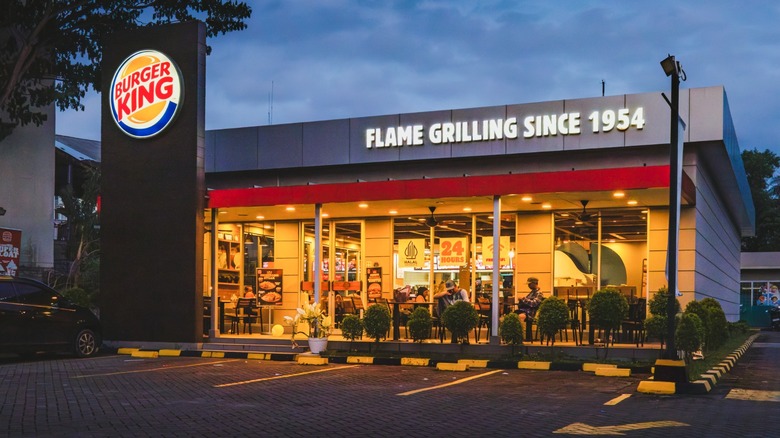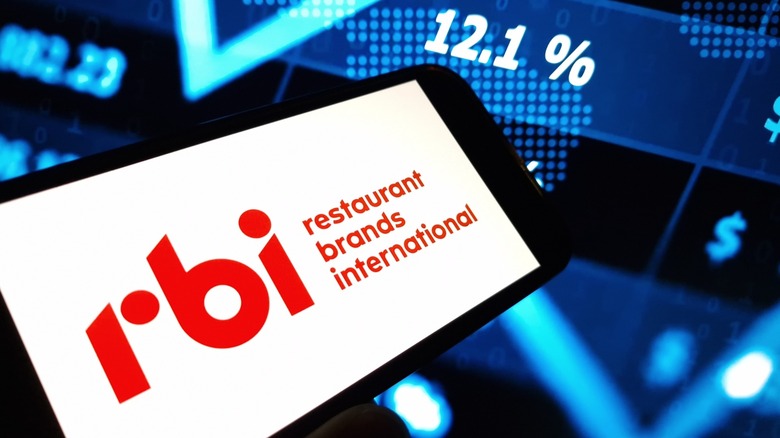The Mysterious Fast Food Empire That Owns Burger King
There are only a few global restaurant brands as ubiquitous as Burger King — a franchise with about 19,000 restaurants spanning 100 countries. The chain describes itself as the second largest hamburger restaurant in the world, which is probably a nod to it's age-old rival, McDonald's. However, behind millions of Whoppers is a parent company, Restaurants Brands International (RBI). Founded in 2014 after Burger King merged with Canadian coffee giant Tim Hortons, Toronto-based RBI has been an increasingly strong rival for Yum! Brands, the company that owns KFC, Pizza Hut, Taco Bell, and Habit Burger & Grill.
RBI also includes Popeyes and Firehouse Subs in its portfolio, pushing its August 2025 market cap to $29 billion, or about $10 billion shy of Yum! Brands' $39 billion. However, with Yum! Brand's crown jewel, KFC, struggling to keep locations open RBI might be set to catch up — or even overtake its older conglomerate rival. Backed by its major shareholder, Brazilian investment firm 3G Capital (through 3G Restaurant Brands Holdings LP), RBI's rise has been rapid and acquisition-driven. It's market cap growth rate indicates leadership is doing something right as the company experienced a 36.95% uptick in market cap from August 2024 to August 2025 (via Stock Analysis), almost double the rate of McDonald's and four times that of Yum! Brands which is impressive in a post-pandemic economy that hasn't been friendly to the restaurant industry.
Things didn't seem so promising for Burger King before RBI
Reports from industry outlets show that RBI is actively refreshing Burger King in 2025 as it remodels and refranchises locations ahead of schedule, in addition to expanding late-night hours across around 1,200 locations in order to capture additional consumer demand. These strategic moves indicate more decisive leadership than what Burger King experienced under its prior ownership.
Looking back at the company's early days in the 1960s, entrepreneurs and then-owners James McLamore and David Edgerton surmised that the best way to get their burgers into more mouths was to sell franchising opportunities. By the time they sold Burger King Corporation to packaged-foods seller Pillsbury in 1967, the brand had over 250 locations. However, under Pillsbury, this loose franchising model spiraled into inconsistency. Franchisees were running their own show, and the company struggled to impose quality control or brand cohesion. By the 1980s, internal chaos and rapid leadership turnover left Burger King chasing McDonald's shadow, while costly ad campaigns and menu experiments failed to bring lasting gains.
Later owners, including Diageo, largely neglected the chain in favor of more profitable ventures. Franchisee frustration also reached a breaking point by the early 2000s, culminating in lawsuits, public backlash, and even calls for the company to sell. When Burger King was finally acquired by private equity group, TPG, in 2002 it became clear the brand needed saving. However, it wasn't until RBI's resulting formation in 2014, and 3G Capital's buyout in 2019, that Burger King began its climb back to relevance.

